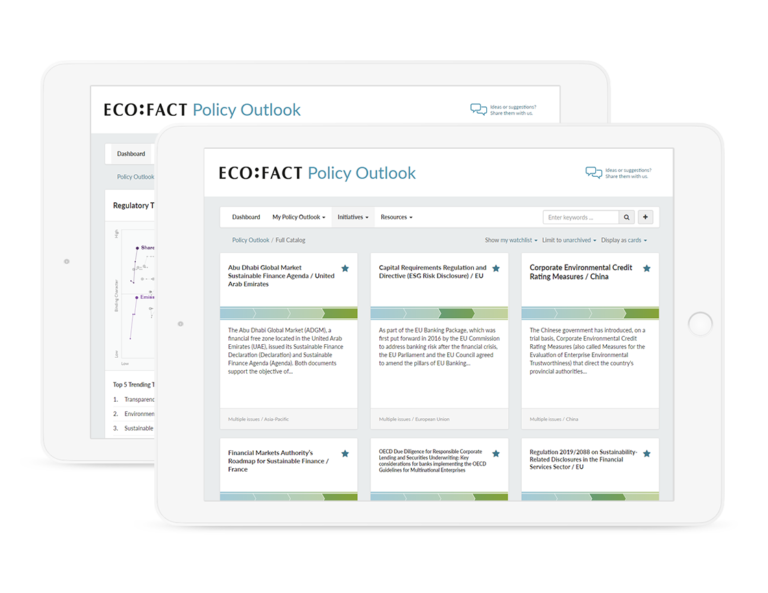Senior managers’ responsibility for sustainability issues
Sustainable finance and corporate responsibility considerations are gaining strategic relevance. This is leading to institutions’ boards and senior management being increasingly involved in defining strategic objectives while deciding how their institutions will seize emerging opportunities related to sustainability issues. From a regulatory perspective, boards and senior management are expected to play a prominent role in shaping their institutions’ approach to managing sustainability issues. These issues are becoming materially relevant to their institutions as well as key stakeholders, such as clients and regulators.
An intricate regulatory landscape sets the expectation for boards and senior management to address sustainability issues. It consists of binding laws from state regulators, such as company laws, and regulatory instruments issued by other groups, for example, stock exchanges. Importantly, regulatory requirements targeting sustainability issues are not always explicit. Implicit requirements emerge when materially relevant sustainability issues arise within an area falling under the board and senior management’s responsibility, for example when defining an institution’s risk appetite or remuneration policy.
Often, regulations do not contain an exhaustive list of issues to be considered, but instead expect that those involved in the formulation, adoption, and oversight of an institution’s broad policies consider a wide range of topics that they themselves deem to be significant. Thus, boards and senior management are responsible for considering relevant issues (e.g. including climate-related topics within risk appetite statements or sustainability performance within compensation schemes), which ultimately demands that they observe and comply with a whole array of sustainability-linked requirements.
When observing this murky landscape, the following baseline sustainability-related regulatory expectations directed to boards and senior management can be identified.
Strategy and value creation:
- review and guide corporate sustainability strategy (including business model), major plans of action, and procedures
- drive necessary changes to ensure that ESG issues (risks and opportunities) are adequately considered and manage
Control:
- monitor the effectiveness of the company’s governance practices and make changes as needed
- establish and ensure the effectiveness of internal controls, ethics, and compliance programs or measures to comply with applicable laws, regulations, and standards
- establish, foster, and maintain a corporate culture that is aware of sustainability issues
Remuneration and resources:
- align key executive and board remuneration with the ESG interests of the company and its shareholders
- ensure that an appropriate amount of resources is directed to the management of sustainability issues
Risk:
- adopt ESG risk policies
- oversee the risk management system and systems designed to ensure that the corporation complies with applicable laws
Disclosures:
- review and approve disclosure statements
To know more about how sustainable finance and corporate responsibility regulations are shaping board members and senior managers’ roles and responsibilities subscribe to Policy Outlook.
 All posts
All posts Contact
Contact



